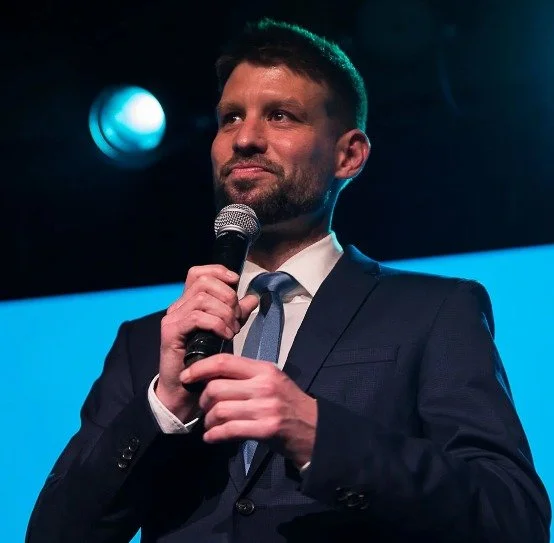The Supreme Court agreed Friday to hear a second major case on social media and will decide whether the Biden White House violated the 1st Amendment when it urged platforms to take down "misinformation and disinformation" about COVID-19.
Los Angeles Times
TikTok has said it has assigned more people to combat disinformation on its platform after the attack on Israel by Hamas after the European Union chastised the social media company.
The Guardian
Shayan Sardarizadeh is a senior journalist covering disinformation, extremism and conspiracy theories for BBC Monitoring’s disinformation team as part of BBC Verify. Since Hamas attacked Israel on 7 October, he’s debunked dozens of misleading visuals on social media and published his findings on widely read threads on Twitter, now known as X.
Reuters Institute
Social media has, once again, become the window through which the world is witnessing unspeakable violence and cruelty in an active war zone. Thousands of people, including children and the elderly, have been killed or injured in Israel and the Gaza Strip since Hamas launched its surprise attack on Saturday—you have probably seen the carnage yourself on X, TikTok, or Instagram.
The Atlantic
Social media is flooded with out-of-context videos and images users claim are coming from Israel or Gaza. Finding the original source is key.
Poynter
Text-based tools like ChatGPT can create convincing-sounding academic articles on a subject, complete with citations that can fool people without a background in the topic of the article. Video-, audio- and image-based AI can successfully spoof people’s faces, voices and even mannerisms, to create apparent evidence of behaviour or conversations that never took place at all.
The Conversation
One viral video claims to show a Hamas fighter shooting down an Israeli helicopter — but it's a clip from the video game Arma 3. A video purporting to show an Israeli woman being attacked in Gaza was filmed in 2015 in Guatemala.
National Public Radio
My University of Washington colleagues and I study online rumors, conspiracy theories, and disinformation. In the past year, research like ours has come under fire — often by some of the same individuals and organizations that benefit from the spread of falsehoods.
Kate Starbird/The Seattle Times
Misinformation researchers and authors of The Misinformation Age: How False Beliefs Spread Cailin O’Connor and James Owen Weatherall of the University of California Irvine spent an evening with The Integrity Project last week.
The Integrity Project
Brent Lee struggles to explain why he used to believe that a cabal of evil satanic paedophiles was working to establish a new world order. He pauses, looks sheepish, and says: “I cringe at all this now.”
The Guardian
Just two days before Slovakia’s elections, an audio recording was posted to Facebook. On it were two voices: allegedly, Michal Šimečka, who leads the liberal Progressive Slovakia party, and Monika Tódová from the daily newspaper Denník N. They appeared to be discussing how to rig the election, partly by buying votes from the country’s marginalized Roma minority.
WIRED UK
The Chinese government is investing billions of dollars annually into a global campaign of disinformation, using investments abroad and an array of tactics to promote Beijing’s geopolitical aims and squelch criticism of its policies, according to a new State Department assessment.
The Wall Street Journal
It’s been a bleak year for the media. Just this past spring, news companies slashed budgets and instituted widespread layoffs, with a particularly rough round of executions that culminated in the end of BuzzFeed News and Vice News Tonight. At the same time, there’s been a growing complaint that no one—least of all Gen Z—has media literacy anymore.
Slate
On a recent Sunday morning, dozens of Beyoncé fans pass through the lobby of the Hotel ZaZa wearing T-shirts from the Houston native’s Renaissance World Tour, while Dr. Peter Hotez, a virologist and Bayou City transplant, sits on a green sofa talking about an era when science was celebrated. “The point is we are no longer living in the Dark Ages,” Hotez says. “We’ve benefited from the age of Enlightenment. The fact that scientists are targeted is what gets me so upset.”
Houston Chronicle
The number of fact-checking operations at news organizations and elsewhere has stagnated, and perhaps even fallen, after a booming expansion in response to a rise in unsubstantiated claims about elections and the pandemic. The social networking companies that once trumpeted efforts to combat misinformation are showing signs of waning interest.
The New York Times
Academics, universities and government agencies are overhauling or ending research programs designed to counter the spread of online misinformation amid a legal campaign from conservative politicians and activists who accuse them of colluding with tech companies to censor right-wing views.
The Washington Post
According to YouTuber Patrick Humphrey, the country is collapsing, and everyone needs to prepare. His online account chronicled a summer filled with cascading calamities.
Poynter
Around the time of the 2016 election, YouTube became known as a home to the rising alt-right and to massively popular conspiracy theorists. The Google-owned site had more than 1 billion users and was playing host to charismatic personalities who had developed intimate relationships with their audiences, potentially making it a powerful vector for political influence.
The Atlantic
The Google DeepMind team has believed for years that building great generative AI tools also requires building great tools to detect what has been created by AI. There are plenty of obvious, high-stakes reasons why, says Google DeepMind CEO Demis Hassabis. “Every time we talk about it and other systems, it’s, ‘What about the problem of deepfakes?’”
The Verge




















